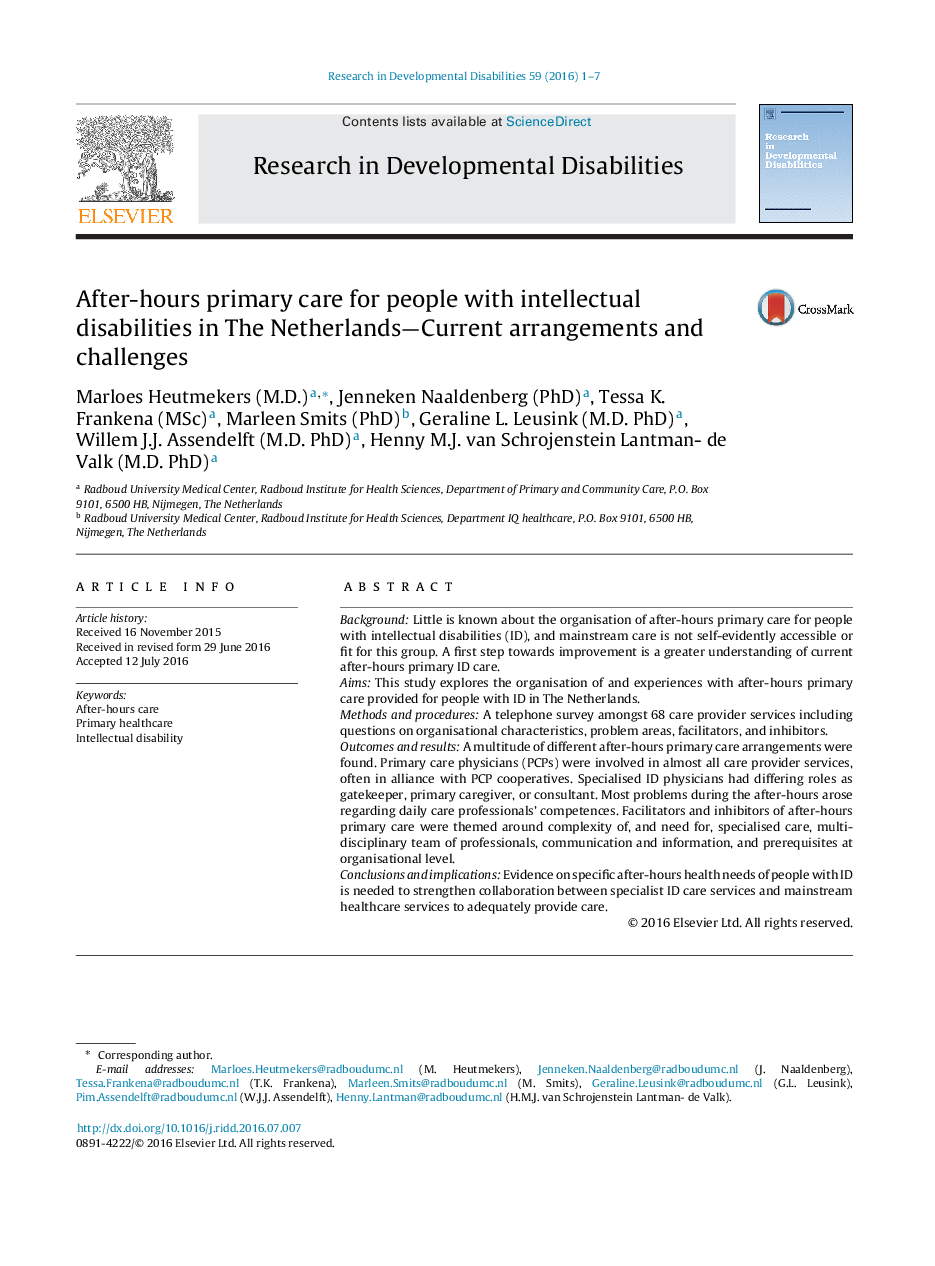| Article ID | Journal | Published Year | Pages | File Type |
|---|---|---|---|---|
| 370957 | Research in Developmental Disabilities | 2016 | 7 Pages |
•After-hours ID care concerns a vulnerable group in a fragile situation.•A myriad of professionals and arrangements characterise after-hours ID care.•Daily care professionals ‘competency is an obstacle in after-hours ID care.•Collaboration between mainstream and specialist ID after-hours care is essential.•More insight in the health needs of people with ID during after-hours is needed.
BackgroundLittle is known about the organisation of after-hours primary care for people with intellectual disabilities (ID), and mainstream care is not self-evidently accessible or fit for this group. A first step towards improvement is a greater understanding of current after-hours primary ID care.AimsThis study explores the organisation of and experiences with after-hours primary care provided for people with ID in The Netherlands.Methods and proceduresA telephone survey amongst 68 care provider services including questions on organisational characteristics, problem areas, facilitators, and inhibitors.Outcomes and resultsA multitude of different after-hours primary care arrangements were found. Primary care physicians (PCPs) were involved in almost all care provider services, often in alliance with PCP cooperatives. Specialised ID physicians had differing roles as gatekeeper, primary caregiver, or consultant. Most problems during the after-hours arose regarding daily care professionals’ competences. Facilitators and inhibitors of after-hours primary care were themed around complexity of, and need for, specialised care, multidisciplinary team of professionals, communication and information, and prerequisites at organisational level.Conclusions and implicationsEvidence on specific after-hours health needs of people with ID is needed to strengthen collaboration between specialist ID care services and mainstream healthcare services to adequately provide care.
